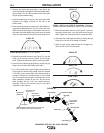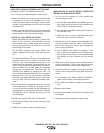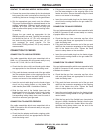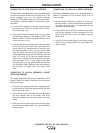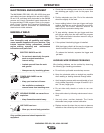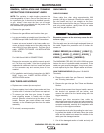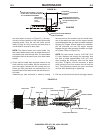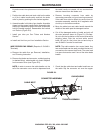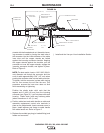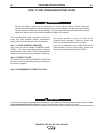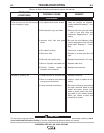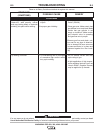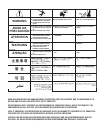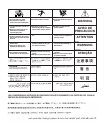
(&#) '##("
!")!R$&#!$
Observe all Safety Guidelines detailed throughout this manual
If for any reason you do not understand the test procedures or are unable to perform the tests/repairs safely, contact your @42=
:?4@=?FE9@C:K65:6=5'6CG:4624:=:EJ for technical troubleshooting assistance before you proceed.
)(#"
$&# !'
$&# !'
'-!$(#!'
$#'' )' &!-
Poor arc striking with sticking or
“blast-offs”, weld porosity, narrow
and ropy looking bead, or electrode
stubbing into plate while welding.
Tip seizing in diffuser.
1. Improper procedures of tech-
niques.
2. Improper gas shielding.
1. Tip overheating due to prolonged
or excessive high current and/or
duty cycle welding.
1. See “Gas Metal Arc Welding
Guide” (GS100).
2. Clean gas cone. Make certain that
gas diffuser is not restricted. Make
certain that gas cylinder is not
empty or turned off. Make certain
gas solenoid valve is operating
and gas flow rate is proper.
3.Remove gun liner and check rub-
ber seal for any sign of deteriora-
tion or damage. Be sure set screw
in brass connector is in place and
tightened against the liner bush-
ing.
1. Do not exceed current and duty
cycle rating of gun.
2. A light application of high temper-
ature antiseize lubricant (such as
Lincoln E2067 Graphite Grease)
may be applied to tip threads.



